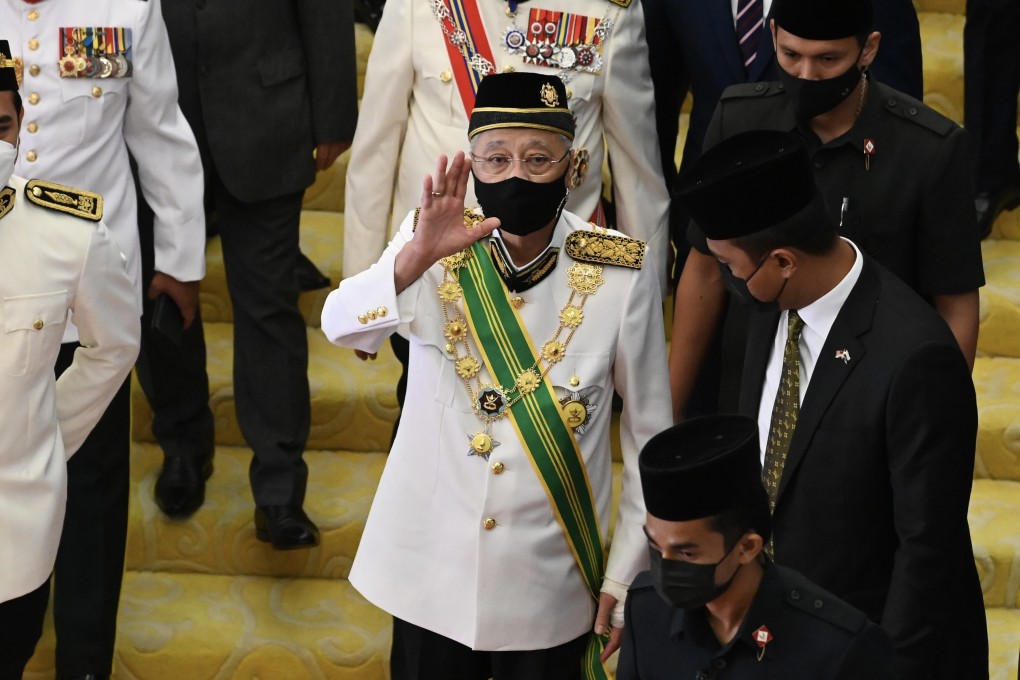Advertisement
Malaysia’s ruling coalition signs landmark pact with opposition, in boost to PM Ismail Sabri
- The bipartisan pact covers areas such as strengthening a Covid-19 plan, parliamentary reforms, and freedom of the judiciary, the PM said
- Ismail Sabri leads with a slim four-seat majority, and the pact could help him pass the 2022 budget – which serves as a de facto confidence vote – in October
Reading Time:3 minutes
Why you can trust SCMP

Reutersin Kuala Lumpur
Malaysian Prime Minister Ismail Sabri Yaakob’s coalition and the main opposition bloc on Monday signed a cooperation pact to ensure stability during the Covid-19 pandemic, an agreement that could also help him win a confidence vote.
Ismail Sabri took office last month with a slim parliamentary majority, becoming the third prime minister in as many years, but the constitutional monarch has called for him to face a vote of confidence to prove he has majority support in parliament.
The legislature reconvened on Monday but no date has been set for the confidence vote.
Advertisement
Under the pact’s terms, details of which were publicly released on Tuesday, the government agreed to carry out several decisions and reforms, including tabling laws to prevent defections and to limit the prime minister’s tenure to 10 years in office.
In return, Anwar’s coalition will not block the government on critical votes in parliament, where their failure to be passed could be construed as a sign of no confidence.
Advertisement
This includes a commitment to support or abstain on the government’s 2022 budget, which is set to be tabled next month. The budget must also be negotiated and finalised on a bipartisan basis, the agreement said.
Advertisement
Select Voice
Select Speed
1.00x